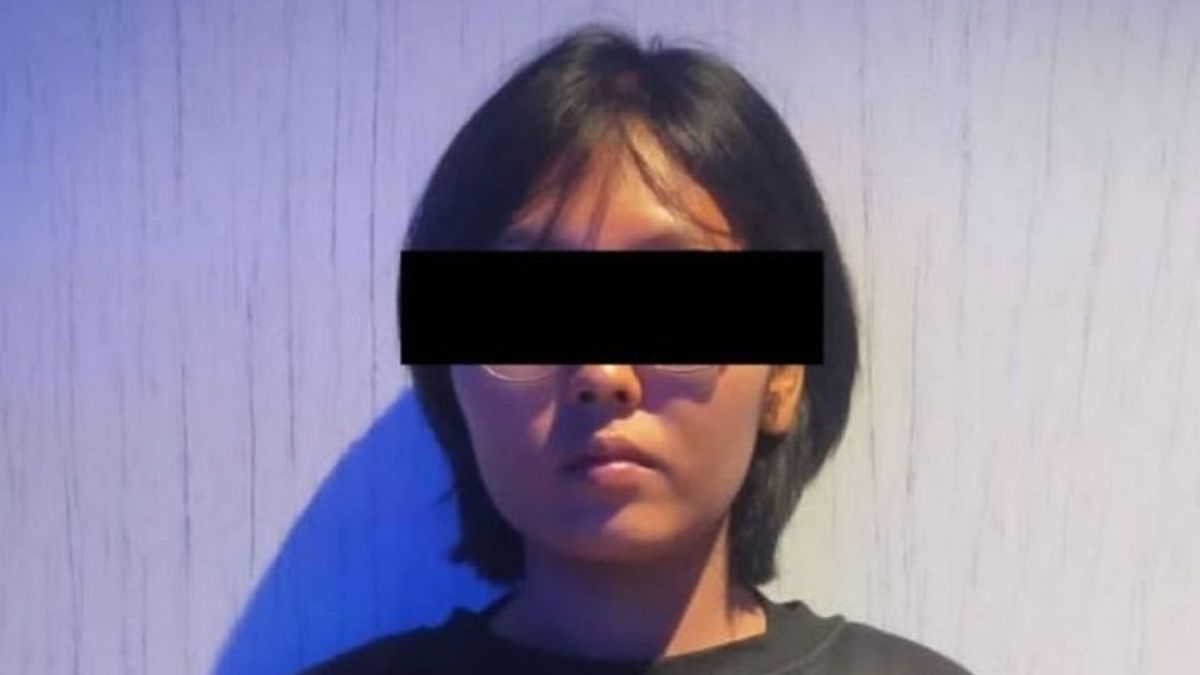JAKARTA - Child prostitution cases have again attracted the attention of the public in the last few days. Polda Metro Jaya arrested a woman with the initials FEA (24), a pimp in a case of prostitution of minors or people through social media.
"We are carrying out forced efforts against suspects suspected of being involved in prostitution or criminal acts of trafficking in persons (TPPO)," said Director of Special Criminal Investigation at the Metro Jaya Police, Kombes Ade Safri Simanjuntak, to reporters in Jakarta, Sunday, September 24.
Ade explained that there were two children entangled in the prostitution case, namely SM (14) and DO (15). Both claimed to know the perpetrators from the social network. But apart from SM and DO, Ade said there were still 21 children who were exploited through social media by the perpetrators.
The disclosure of cases of child prostitution, although it is always repeated every year, still shocked the public. Previously, on March 16, 2023, the police revealed the practice of prostitution involving five girls in Gang Royal, North Jakarta.
Reported by the Ministry of Women's Empowerment and Child Protection (KemenPPPA) page, the UNICEF report in 1998 estimated that the number of children released reached 40,000 to 70,000 children spread across 75,106 places throughout Indonesia, including street children.
Economic issues, a hedonist lifestyle, despair, complex social and cultural issues, a moral degradation process, or rampant permissive attitudes, can be the main sponsor' of the rampant practice of prostitution or prostitution. Meanwhile, in a study of the Factors Behind and the Impact of Psychology on Child Prostitution, it is stated that families can be the cause of child prostitution.
Unharmonic families, less conducive family environments, lack of emotional attachment between children and parents as well as authoritarian parenting can be the cause of child prostitution.
Child psychologist Ghianina Yasira Armand, BSc Psychology, MSc Child development said there are three things that can encourage child prostitution, namely economy, environment, and education.
It is this economic background that entangled SM in prostitution. SM admitted that he wanted to help his grandmother after being promised a fee of Rp. 6 million after serving customers. The prostitution business is indeed considered a lucrative business and shortcuts to meet economic needs.
The purpose of prostitution varies, one of which is that children are used to pay their parents' debts. This indicates that economic factors can be one of the factors that encourage child prostitution, "Ghianina, who is also an applied psychologist, said.
The second is the residential environment, which can also affect this phenomenon. If children grow up in an environment with a lot of exposure related to prostitution or even family members have a role in prostitution, children can learn and have an understanding of this as normal and project into their life experiences.
"Especially if there is no guidance provided by the parents or those closest to them regarding this matter," Ghianina added.
Apart from the economy and the environment, education can also be one of the factors that play a role in prostitution. Lack of education in society can cause them to not know and not realize that what they are doing is wrong. Without sufficient and adequate education, society becomes easy to manipulate and explore by others.
"Without having critical thinking and a basic understanding of human rights, especially children. If they think it can solve the problems they have, they don't think much longer about doing it because they don't have a solid basis for understanding and education to know that this behavior is inappropriate," said Ghianina.
Child prostitution is one of the serious problems faced by Indonesia. Whereas Article 63-66 of Law Number 39 of 1999 concerning Human Rights specifically states that children have the right to be protected from various reasons, both economic exploitation, exploitation and abuse of sex, kidnapping, trade, drugs, and drug use, are protected during the legal process.
Forensic psychologist Reza Indragiri Amriel emphasized that in terms of law, whatever the reason, the children who were launched were victims. They still have to receive special protection from the state and be given restitution or compensation from their superiors.
However, Reza did not deny the fact that many cases of child prostitution were carried out consciously without coercion. It is this conscious self-draining that then makes it difficult for child prostitution to be cured.
"From a psychological point of view, it still needs to be checked how far the children also want to become prostitutes. For example, naughty children who want to become prostitutes to buy credit, cigarettes, alcohol, and other damaged behaviors," Reza told VOI.
"By understanding the real condition of the child's inner state, it is illustrated that child prostitution can no longer be photographed in black and white. The perpetrator and the victim are actually mix and mix. Hopefully the handling also includes that complexity," said Reza again.
This, said Reza, made the problem of child prostitution even more complicated, making it difficult to stop.
"Children already have the awareness that their bodies can bring in commercial benefits. This is a sad terrible intervention," said Reza.
VOIR éGALEMENT:
The English, Chinese, Japanese, Arabic, and French versions are automatically generated by the AI. So there may still be inaccuracies in translating, please always see Indonesian as our main language. (system supported by DigitalSiber.id)













